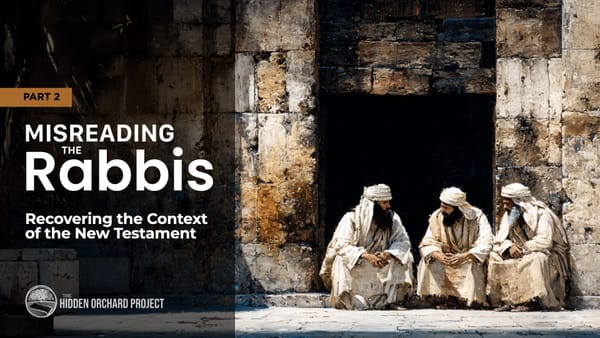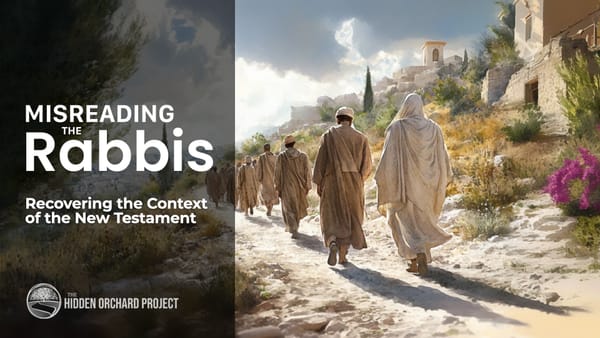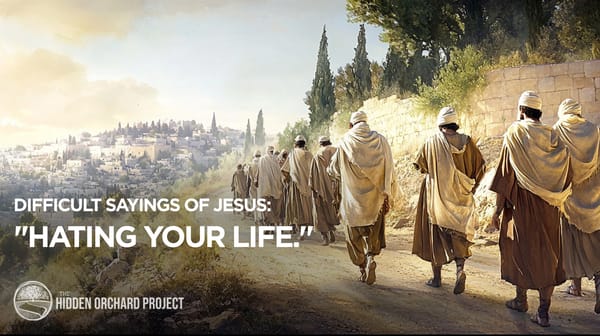Paul's Eagerness to Celebrate Shavuot
Did you know that Paul was adamant about keeping the festival of Shavuot at the Temple in Jerusalem? If not, it is likely because many English translations have obscured this account.
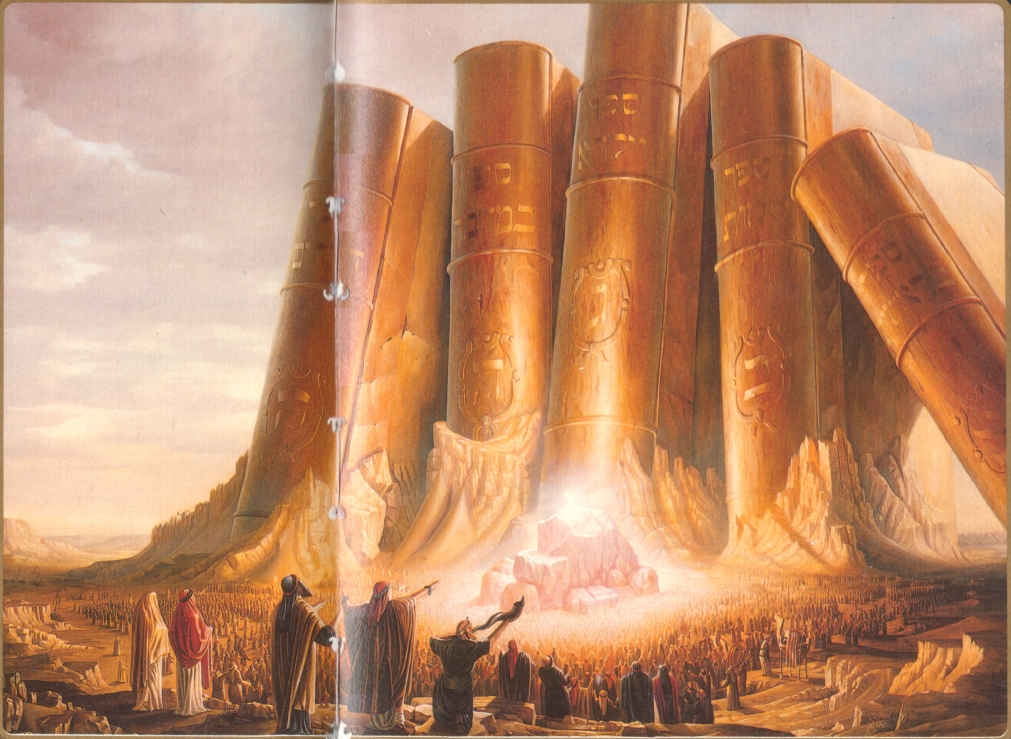
Did you know that Paul was adamant about making it to the Temple in Jerusalem for the celebration of Shavuot? If not, it is likely because some English translations have obscured an important verse in the Book of Acts.
But, before we look at that passage, some might be wondering, "What is Shavuot¹?", and "Why would Paul have been intent on celebrating in Jerusalem?"
The Significance of Shavuot
The festival of Shavuot (which means "weeks" in Hebrew), is known to some as "Pentecost" (which means "fiftieth" in Greek). Shavuot occurs about 7 weeks, or 50 days after Passover, and celebrates the giving of the Torah² to the nation of Israel. This unprecedented event stands as a critical milestone in world history - one that is remembered daily in Jewish prayer.
In a sense, Passover and Shavuot can be viewed as one expansive holiday as they are connected by a period of counting the days in between them. Passover, the counting [of the Omer], and Shavuot are commanded in the Torah³. Thus, counting the days helps to recapture the building anticipation the Israelites would have felt leaving Egypt, preparing to receive the Torah at Sinai.
Additionally, when the Temple stood, Shavuot was one of the (3) pilgrimage festivals which observant Jews would celebrate in Jerusalem⁴. Shavuot remains an important holiday today as it serves as an archetype for Messianic redemption.
Therefore, understanding the significance and eschatological aspects of Shavuot is important in understanding the New Testament, particularly Acts and the letters of Paul. Someone versed in the Midrash around Shavuot at Sinai will see numerous allusions in the account of Shavuot (Pentecost) in Acts 2.
In Acts 2, the Apostolic community comprised of Jews and [Jewish] converts were present in the Temple area to celebrate Shavuot. There, they received an endowment of Ruach HaKodesh (Holy Spirit) along with many others in their vicinity. From that event, it seems the movement began to spread rapidly throughout the Roman Empire, in time attracting more and more Gentiles.
The Holy Temple
If you recall, in the first century, more Jews were living in the diaspora than in Israel. This meant that Jerusalem could host over a million people during the pilgrimage festivals. Some suggest a number of these guests could have been Gentiles who aligned themselves with the Jewish people, though their access would be limited to an area known as 'the Court of Gentiles'.
For Paul, the increase in Gentile guests in the synagogue seemed to be what the prophets foretold when describing how the nations would turn away from paganism to follow the G_D of Israel.
"For My House shall be called
A house of prayer for all peoples.” - Isaiah 56:7
Because of the enduring importance of the Temple, the Apostolic leadership remained within Jerusalem. It is, for this reason, that the critical discussion of Acts 15 is known as "The Jerusalem Council".
The last line of Luke's Gospel indicates that the Apostles remained in close proximity to the Temple, reciting berachot (Blessings) to G_D continually. This would include continued participation in the festivals, daily prayers, and associated offerings.
The Omitted Passage
I find it unfortunate that translators sometimes omit a passage or opt to bring their translations into more familiar territory. An example of this can be seen in chapter 18 of Acts.
The NIV⁵ and ESV omit the line mentioning Paul's enthusiasm as he sets sail for Jerusalem to observe the festival. However, the Greek⁶ includes this passage, as well as the KJV, as it tends to render a literal translation. We read:
“When they desired him to tarry longer time with them, he consented not; But bade them farewell, saying, I must, by all means, observe this feast that cometh in Jerusalem: but I will return again unto you if G_D wills.
- Acts 18:20-21 KJV
How do we know this reference is for Shavuot? When we look at Acts 20:16, we read the following:
Paul had decided to sail past Ephesus so as not to spend time in the province of Asia, for he was hurrying to arrive in Jerusalem, if possible, by the day of Pentecost... - Acts 20:16
Aside from his continued observance of Shabbat and festivals, this strongly suggests that Paul would have participated in the daily Counting of the Omer between Passover and Shavuot.
Paul's Observance
For some this is not a surprise, it is simply more evidence that Paul had not converted away from his Jewish identity and covenantal responsibilities. Further, he recognized the importance of these distinctions and their significance in Messianic fulfillment.
In this section of Acts we learn that Paul went to Phillipi where he celebrated Passover and Unleavened Bread before sailing to Troas (Acts 20:6). From there, he hurried to Jerusalem to observe Shavuot (Acts 20:13-16).
Thus, Shavuot would have been an important festival for Paul and the Apostolic community. It stood for and still stands, to this day, an enduring reminder of Israel's mission to be a kingdom of priests⁷, sanctifying the Name of G_D among the nations.
Notes:
¹ https://www.myjewishlearning.com/article/shavuot-101/
² https://www.thehiddenorchard.com/the-misunderstood-torah/
³ Leviticus 23
⁴ Exodus 23:14-16
⁵ “When they asked him to spend more time with them, he declined. But as he left, he promised, “I will come back if it is G_D’s will.” Then he set sail from Ephesus.
- Acts 18:20-21 NIV
“When they asked him to stay for a longer period, he declined. But on taking leave of them he said, "I will return to you if G_D wills," and he set sail from Ephesus.”
- Acts 18:20-21 ESV
⁶
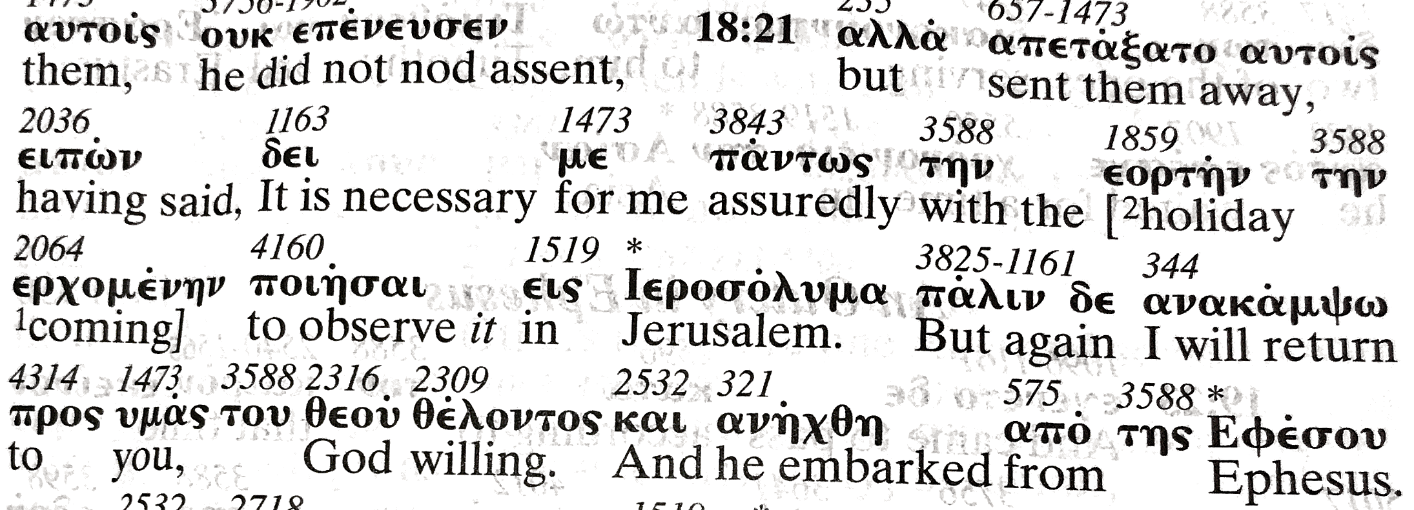
⁷ "but you shall be to Me a kingdom of priests and a holy nation.’ These are the words that you shall speak to the children of Israel.”" - Exodus 19:6

